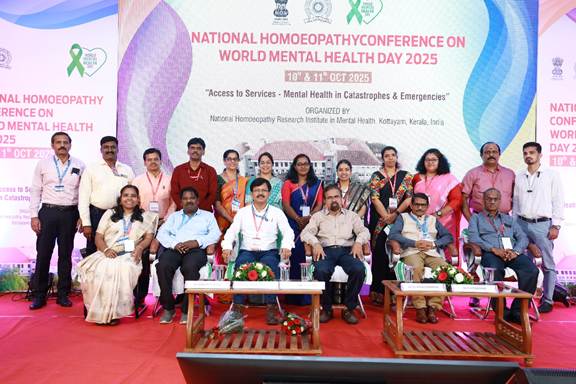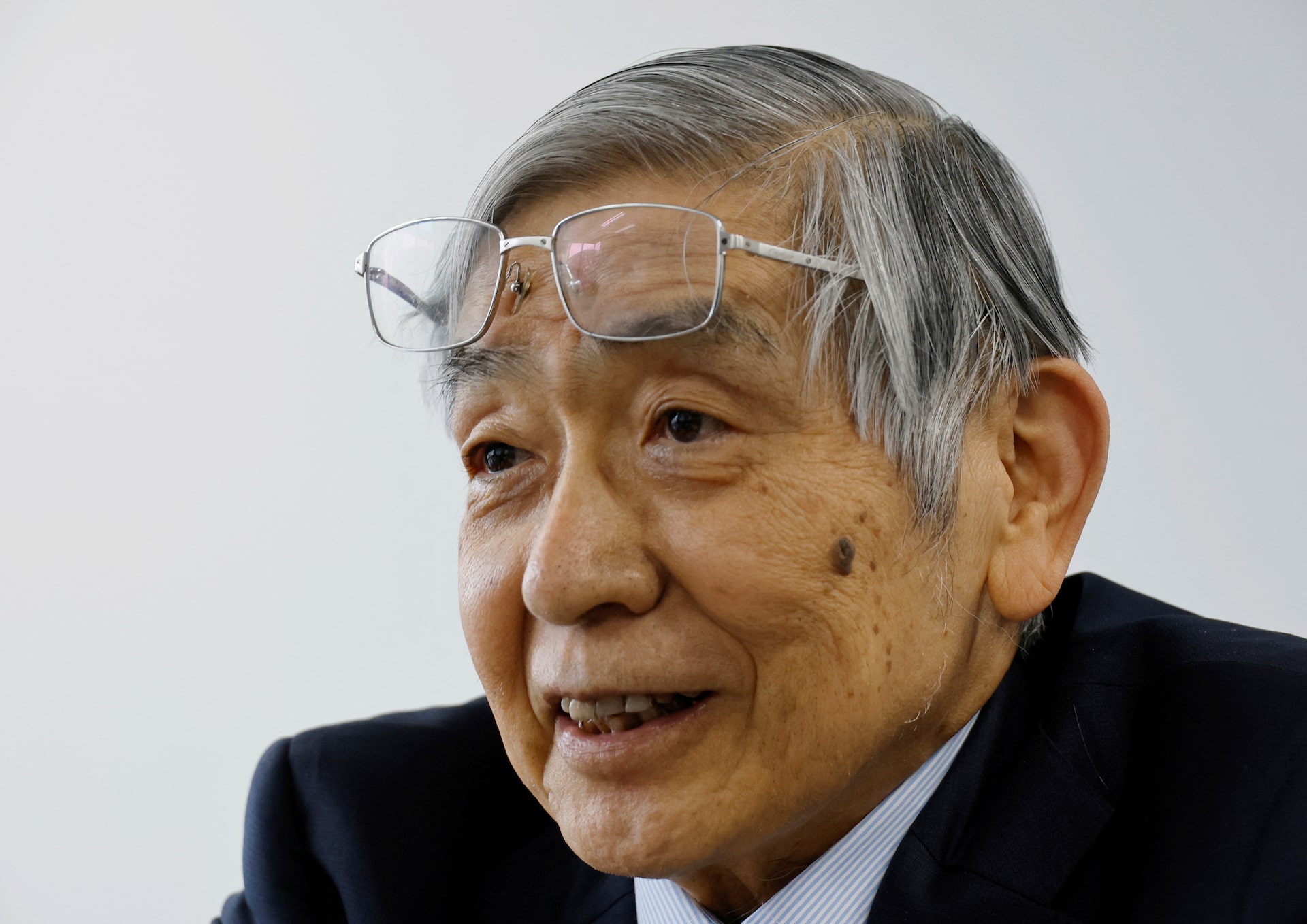The Conference Highlights the Theme ‘Access to Services – Mental Health in Catastrophes and Emergencies’Experts Across India Gather at Two-Day Homoeopathy Conference to Discuss Integrative, Research-Driven Approaches to Mental Health Care in Disaster and Emergency Settings
The National Homoeopathy Research Institute in Mental Health (NHRIMH), Kottayam—an apex institution under the Central Council for Research in Homoeopathy (CCRH), Ministry of AYUSH organized a two-day National Homoeopathy Conference on the occasion of World Mental Health Day 2025. The event was held from 10th to 11th October 2025 at the NHRIMH Auditorium, Kottayam, with the central theme ‘Access to Services – Mental Health in Catastrophes and Emergencies’.
The conference brought together leading experts, researchers, and practitioners in the field of Homoeopathy and mental health from across the country. It focused on the growing relevance of Homoeopathy in psychiatric emergencies and explored innovative research and integrative approaches to mental health care.
The inaugural session of the national conference on integrative mental health care in disaster and emergency settings was held at NHRIMH, Kottayam, with the participation of key dignitaries and experts from across the country.
Dr. Subhash Kaushik, Director General, CCRH, New Delhi, addressed the gathering virtually. He emphasized the need for integrating Homoeopathy into psychosocial care frameworks, particularly in post-disaster rehabilitation and resilience-building, based on robust research evidence.
Shri Chetan Kumar Meena, IAS, District Collector, Kottayam, attended the event as Guest of Honour. He appreciated the ongoing efforts of NHRIMH in advancing integrative mental health care and highlighted the importance of incorporating Homoeopathy into disaster response strategies to ensure wider accessibility of mental health services.
Dr. Debadatta Nayak, Assistant Director (H) and Officer-in-Charge, NHRIMH, Kottayam, delivered the welcome address. He underlined the global relevance of the conference theme and the urgent need to strengthen accessible mental health services in disaster and emergency contexts.
Dr. R. Sitharthan, Principal, NHRIMH, Kottayam, proposed the formal vote of thanks, expressing gratitude to all dignitaries, speakers, participants, and organizing team members for their valuable contributions to the success of the event.
On the first day, the conference featured scientific sessions on topics such as Disaster Mental Health: Lived Experience and Emerging Trends; Psychiatric Crisis in Hydrological Disasters: Community-Based Management in Wayanad, Kerala; Homoeopathic Approaches in Disaster Management; Resilience in Crisis Situations; N-of-1 Trials and Translational Networks in Homoeopathy; and Emotional Dysregulation in ADHD and its Homoeopathic Treatment.
On the second day, sessions included discussions on Methodological Frameworks in Mental Health Research; Clinical and Laboratory-Based Mental Health Assessments; Human Response to Trauma and Psychiatric Emergencies; and case-based insights into PTSD, ADHD, Autism Spectrum Disorder, Psychotic Disorders, and Substance Withdrawal. Presentations also included case series and evidence-based approaches to managing acute psychiatric symptoms through individualized homoeopathic treatment.
Postgraduate trainees from NHRIMH presented their dissertation research on a wide range of mental health conditions including bipolar disorder, internet addiction, schizophrenia, major depressive disorder, obsessive-compulsive disorder, alcohol dependence, cannabis use disorder, autism spectrum disorder, and Parkinson’s disease.
Other distinguished participants included Dr. K. C. Muraleedharan, Assistant Director (H) and Admin In-charge, CCRH, New Delhi, who delivered a special address on the evolving role of Homoeopathy in community-based mental health care and the need for interdisciplinary collaboration. Dr. C. T. Aravind Kumar, Hon’ble Vice Chancellor of Mahatma Gandhi University, Kottayam, inaugurated the conference and emphasized the necessity of strengthening holistic and person-centered mental health support systems, particularly during crises and emergencies.
The two-day event concluded with a valedictory session, marking the successful completion of the conference. Participants expressed appreciation for the opportunity to engage in academic dialogue and explore the potential of Homoeopathy in emergency mental health care.
The conference reaffirmed the need for evidence-based, integrative, and accessible mental health services, and underscored the valuable role of Homoeopathy as a complementary component in psychosocial and disaster mental health frameworks.





